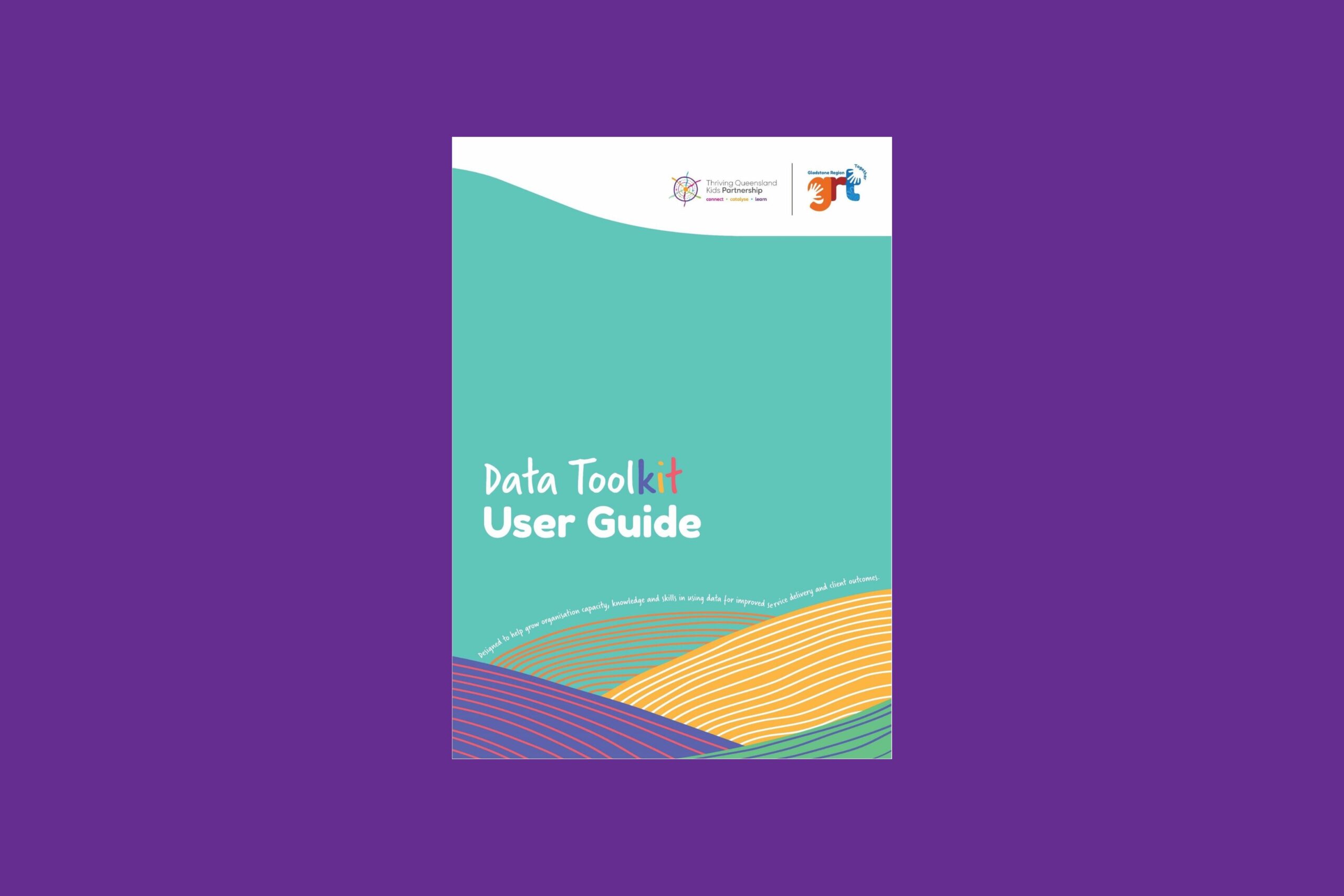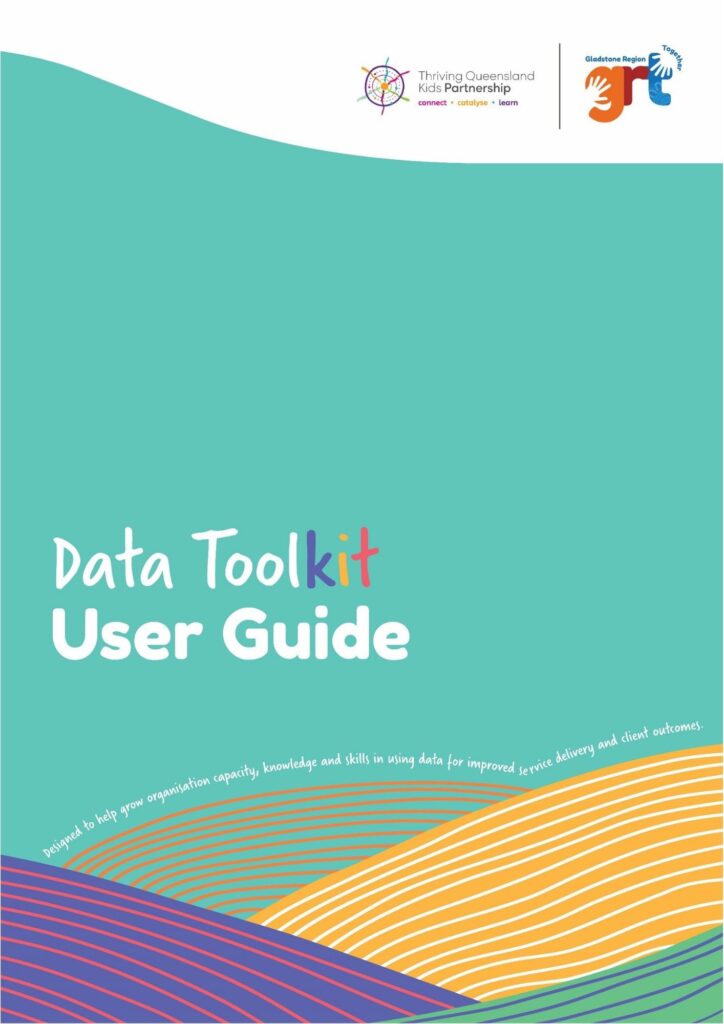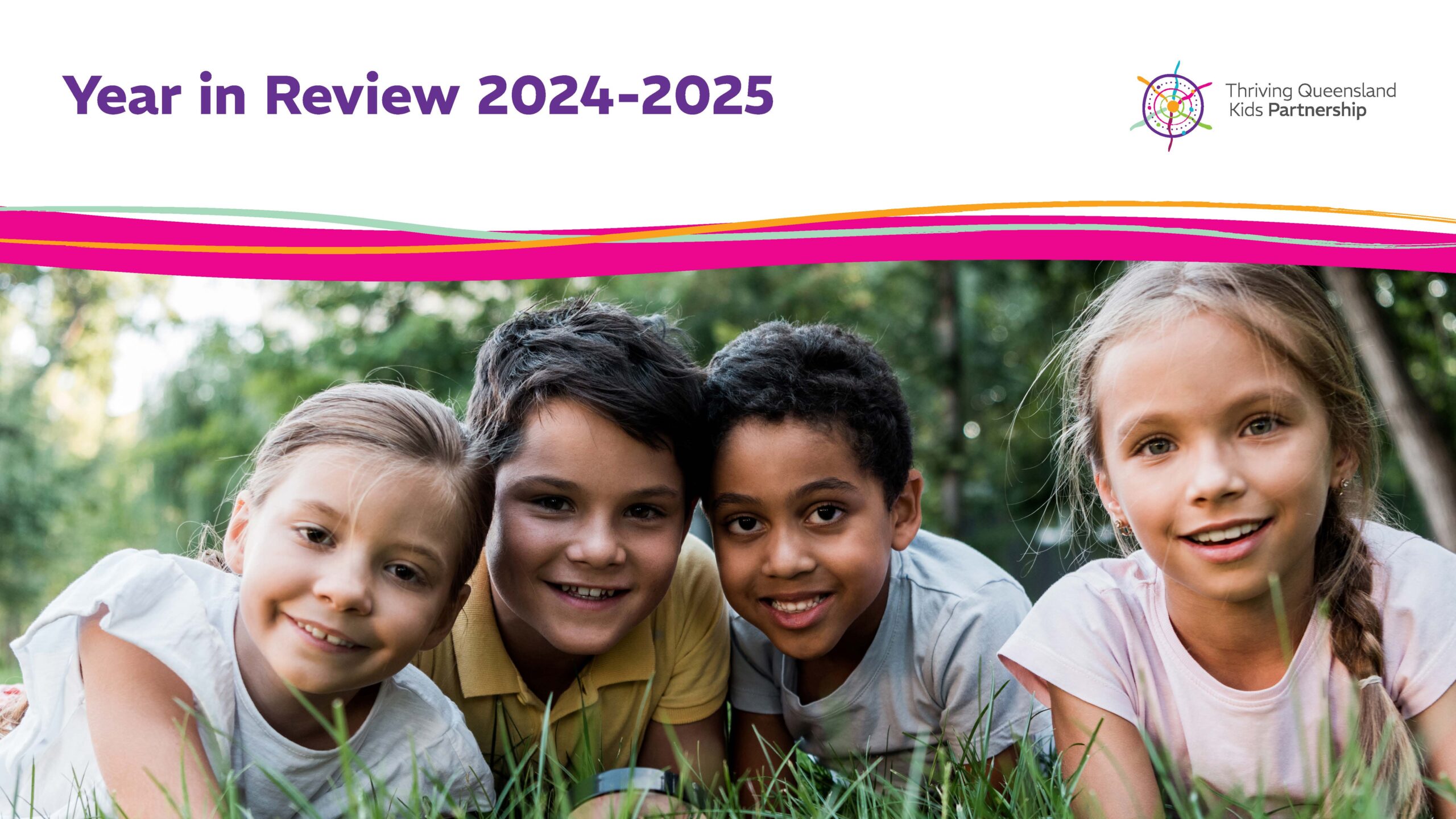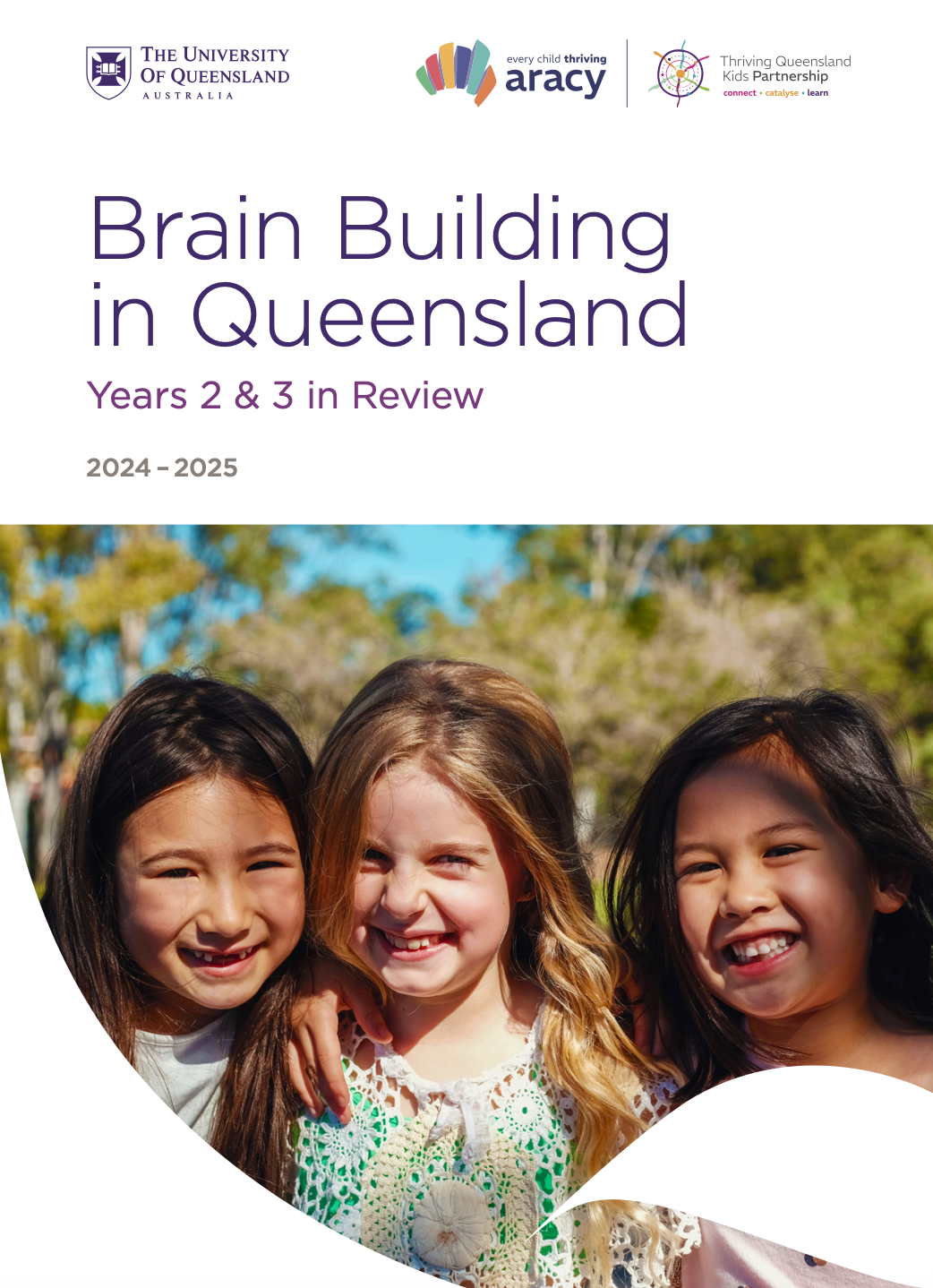To support every child in every community according to their needs, we need reliable, accessible data. When our systems are geared to manage information and to get it to the right people at the right time, we can make better decisions about how best to support children and families.
Thriving Queensland Kids Partnership is working with partners across the state to improve the way that we all collect, manage, share and use data.
Building on the Place-Based Data Framework:
In 2024 TQKP supported place-based leaders and data experts to create a Place-Based Data Framework. The Framework provides a shared understanding of the ‘how to’ of accessing, collecting, and using data for shared measurement and decision-making.
The Framework outlines four data ‘buckets’:
– Population data: Sources include state and federal government, open and closed data assets. De-identified and available at different geographical locations.
– Community data: Collected by conversations, surveys, social media, usually qualitative in nature. May include local wisdom, lived experience, ideas and innovations contributed by community members in place.
– Research data: Collected, observed, generated or created to validate research findings, evidence-based practices or strategies. Usually held by universities, research institutes including within policy and strategy.
– Service data: Collected by organisations or funders during the service delivery process. Could include inputs (resources and funding), outputs (quantity, quality), need (vacancies, participation) and performanсе.
The Data Toolkit User Guide – DOWNLOAD BELOW
The Data Toolkit User Guide relates to the ‘Service data’ bucket in the Place-Based Data Framework.
The Toolkit was developed as a partnership between Thriving Queensland Kids Partnership and Gladstone Region engaging in action Together (GRT), based on learnings from local Gladstone Human Service organisations.
It provides step-by-step processes, templates and guides to:
– develop data collection systems
– assess data findings
– enable evidence informed decision-making
– translate data findings into action
– navigate data capacity partnerships with human services organisations
– develop partnership objectives and data sharing agreements.
Who is the Data Toolkit for?
– People working in place-based initiatives who are working with Human Services organisations around data management.
– People working in Human Services who want to develop their in-house data collection systems and practices.
The full suite of Data Toolkit documents are hosted on the Gladstone Regional Together website.



